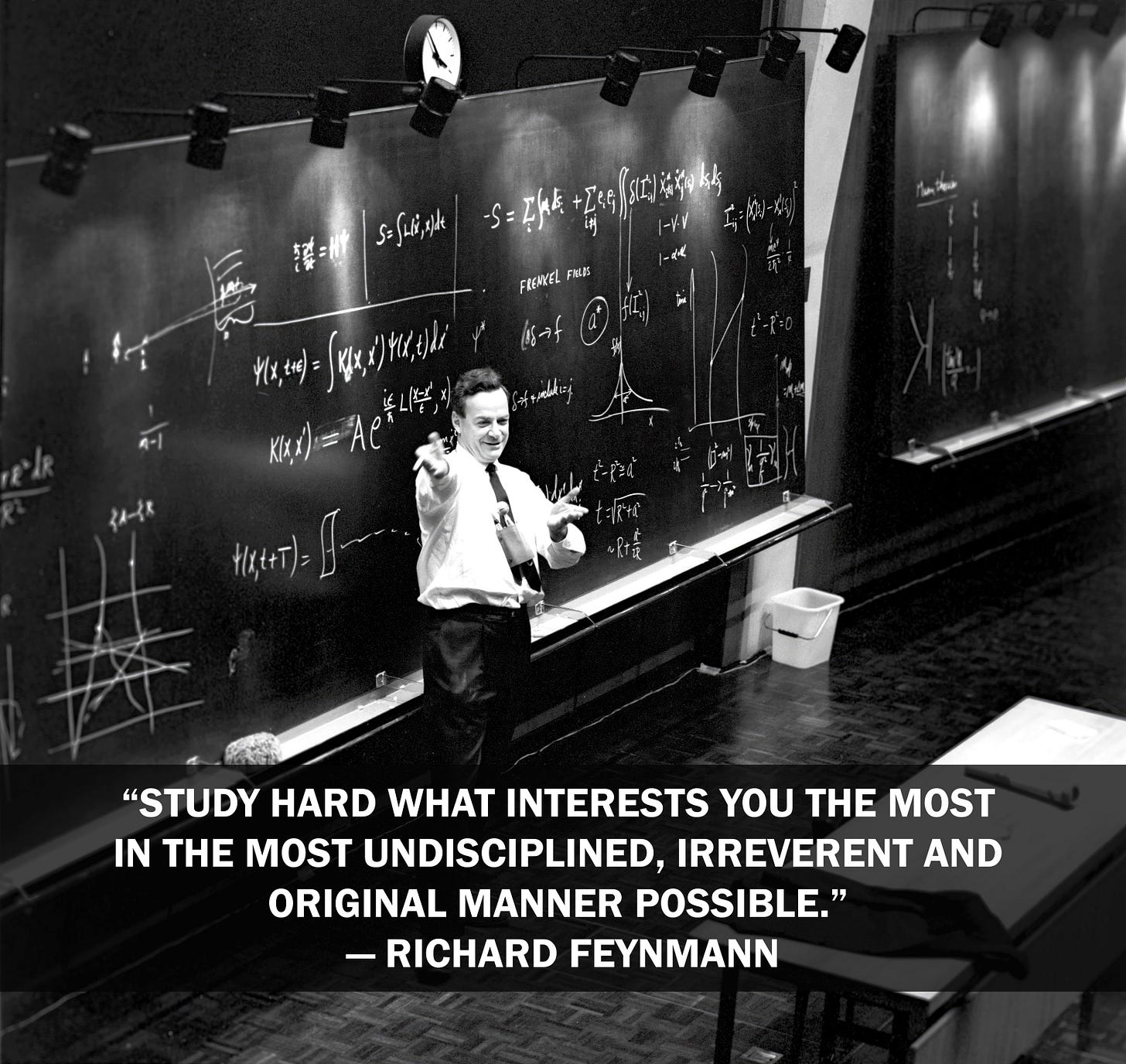The Undisciplined, Irreverent Pursuit of Truth
"We only know things until someone shows us we’re wrong."

The following is a subscribers-only post. If you want access to our comment box & community, subscribers-only posts, The Friday Roundup, and the full post archives, you can grab all of that for just $5 a month (or even less on an annual plan) by subscribing right here:
Richard Feynmann was an American theoretical physicist who contributed to the Manhattan Project and went on to win the Nobel Prize in Physics in 1965 for his work on quantum electrodynamics. He is said to have “opposed rote learning, or unthinking memorization, as well as other teaching methods that emphasized form over function. In his mind, clear thinking and clear presentation were fundamental prerequisites for his attention.”
In an address to the National Science Teachers Association in 1966, Feynmann told the teachers that it was their job to get their students to “doubt the experts.”
“Another of the qualities of science,” he said, “is that it teaches the value of rational thought as well as the importance of freedom of thought; the positive results that come from doubting that the lessons are all true.”
He continued:
As a matter of fact, I can also define science another way: Science is the belief in the ignorance of experts.
When someone says, "Science teaches such and such," he is using the word incorrectly. Science doesn't teach anything; experience teaches it. If they say to you, "Science has shown such and such," you might ask, "How does science show it? How did the scientists find out? How? What? Where?"
It should not be "science has shown" but "this experiment, this effect, has shown." And you have as much right as anyone else, upon hearing about the experiments — but be patient and listen to all the evidence — to judge whether a sensible conclusion has been arrived at.
The intellectual ethos that Feynmann is advocating isn’t limited only to science. It should be deployed as a bulwark against all forms of tribal groupthink. The only way to really understand things or break new ground is to kill the fear of stepping outside the lane you’ve been told you have to stay in, and to ask the questions they tell you you’re not allowed to ask.



